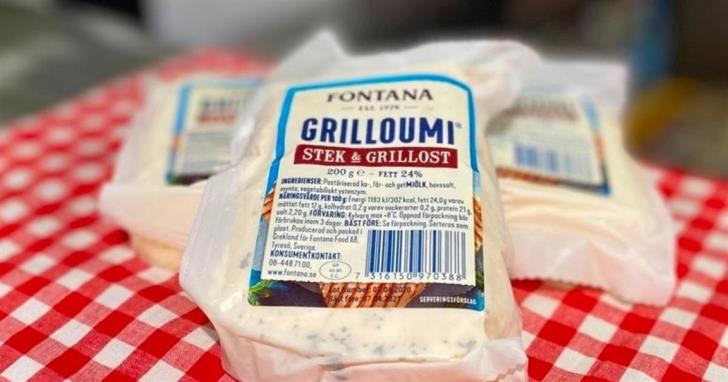The General Court of the European Union (EUSR) has rejected two lawsuits filed by Cyprus against the European Union Intellectual Property Office (EUIPO) regarding the registration of the "GRILLOUMI BURGER" mark by a Swedish company, ruling that the similarity with the certification mark for halloumi does not pose a risk of confusion.
However, in a separate action of Cyprus against EUIPO in relation to the same registration, the GDC considered that confusion about the origin of the product can not be ruled out when it is used by catering services, as the public may consider it to be halloumi of origin. Cyprus.
In particular, according to the relevant press releases of GDEE, all three cases concern an application for registration submitted to EUIPO by the Swedish company Fontana Food AB on October 25, 2016, which concerned the name "GRILLOUMI BURGER".
The entry concerned products falling within Class 29 (such as preserved eggs, fruit and vegetables, frozen, dried and cooked, jellies, jams, compotes) and 30 (such as coffee, tea, cocoa, rice), as well as catering services of Class 43 (in accordance with the Nice Arrangement on the International Classification of Goods and Services for the Purposes of the Registration of Marks).
Cyprus had requested the suspension of the registration for all three classes on February 2, 2017, on the basis of the certification marks "HALLOUMI" and "HALLOUMI". This is a separate regime (verbal certification mark) registered in 1992 for fresh and mature halloumi, and differs from the Protected Designation of Origin regime approved last year.
EUIPO had rejected the objections of Cyprus both regarding the naming of the products for classes 29 and 30 (on 10 May 2018) and regarding their use in the catering services for class 42 (on 8 May 2018).
In July 2018, Cyprus filed appeals against the decisions which were rejected on June 19, 2019 and May 29, 2019 respectively. The reasoning of EUIPO was, in the first case that "there is no risk of confusion between the conflicting marks and that the earlier marks have not acquired an enhanced distinctive character" and in the second that "there is no risk of confusion between the conflicting marks as they cover different products and services And that "if the services covered by GRILLOUMI could be considered similar to foodstuffs because of a complementary relationship, the existence of such a relationship has not been established with regard to cheeses".
Cyprus appealed to EUIPO in the EU General Court in August 2019 in both cases, and the court rulings were announced today, Wednesday.
In the first judgment (Case T-593/19: Cyprus v. European Union Intellectual Property Office - Fontana Food), the GDC carried out a comprehensive assessment of the risk of confusion, recalling that the existence of such a risk the products or services identified by them are identical or similar '.
GDEE found that there is no risk of confusion, as these are different products from those related to halloumi marks. The similarity between the two names "emerges to a small extent", however the public attention is more attracted by the important element 'grilloumi', which has a certain degree of originality, which is low, but is enhanced by the presence of the word 'burger which significantly differentiates the mark at issue from the earlier marks which do not include it '.
With the same reasoning, GDEE also rejected the separate appeal in case T-595/19, which was registered by the Foundation for the Protection of Traditional Cypriot Cheese called Halloumi (which was founded by the Republic of Cyprus in 2013).
In the second decision (Case T-556/19: Cyprus v. European Union Intellectual Property Office - Fontana Food), the GDEE annulled the EUIPO decision rejecting Cyprus' appeal.
"EUIPO erroneously considered that the above products and services were not similar and that there was no risk of confusion between the opposing points," it said.
In particular, in the decision the GDE recalls that "in order to assess the similarity of the products and services of the opposing marks", all influencing factors that characterize their relationship must be taken into account, in particular the nature, the destination, the use, as well as their competitive or complementary nature ".
"Cheeses can be offered to the customers of many restaurants either as an ingredient of meals or as they are in restaurants whose activity is not limited only to the preparation and serving of cooked food, but also consists in the sale of food for consumption outside the point of sale. "Such products are therefore directly linked to catering services."
Although the similarity between the catering service and the products is small, he added, this "does not exclude from the outset that the public concerned may consider that the products and services in question have the same commercial origin".
